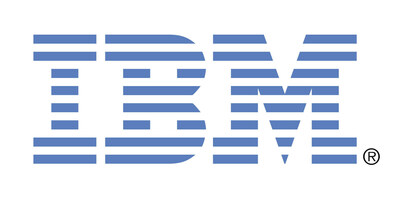- 54% of surveyed executives underestimated the operational complexity of translating AI strategies into outcomes.
- Only 22% of surveyed organizations have established clear guidelines and guardrails for the use of AI in automated decision-making.
- 64% of CMO respondents are now responsible for profitability, with 58% accountable for revenue growth.
ARMONK, N.Y., June 17, 2025 /PRNewswire/ — A new global study by the IBM (NYSE: IBM) Institute for Business Value reveals that surveyed CMOs widely acknowledge the strategic importance of AI, but face an execution gap – largely due to fragmented systems – as they adapt to a significant role shift.
The global study* of 1,800 marketing and sales executives found that while 81% of CMO respondents view AI as a game-changer, 84% report that challenges with rigid, fragmented operations limit their ability to effectively harness the technology. More than half (54%) of respondents admit they underestimated the operational complexity of translating AI strategies into tangible outcomes, and only 17% feel prepared to integrate agentic AI into their processes.
According to the study, only 23% of surveyed CMOs feel employees are prepared for the cultural and operational shifts brought by AI agents, and 67% of respondents see reshaping culture for emerging technology as their responsibility. With 64% of surveyed CMOs now responsible for profitability and 58% accountable for revenue growth, the research underscores the need for greater technology integration and improved cross-functional collaboration to drive business performance. In fact, respondents who report internal collaboration challenges experienced slightly lower (12%) revenue growth in 2024 versus their higher performing peers (13%) – a seemingly modest 1-point gap that could represent $140M in potential upside for an average $14B revenue base.
“The companies that will dominate the next decade are the ones with the deepest AI integrations. This means starting with AI at the core of the organization and building the right operating model and team on top of that,” said Jonathan Adashek, Senior Vice President, Marketing and Communications, IBM. “For many CMOs, this means being willing to admit that our current marketing model—no matter how comfortable, how familiar, or how challenging to replace—is not delivering what is needed and actively sabotaging our future.”
Other key findings include:
As CMOs embrace AI strategies, they may be unprepared to deliver results
- 65% agree AI-literate talent is critical for achieving high priority objectives, yet only 21% of respondents believe they have the talent needed to achieve their goals for the next two years.
- 22% of surveyed organizations have established clear guidelines and guardrails for the use of AI in automated decision-making, which means roughly 8 out of 10 have work to do to guide employees through a major shift in ways of working.
- 62% of respondents say the pace of change creates tensions between demand and operations functions.
- Just under a quarter (24%) of respondents say they have technology platforms supporting consistent cross-functional collaboration, and just 44% have integrated systems for demand planning and fulfillment.
- 69% of surveyed CMOs acknowledge that new privacy regulations will require them to rethink their data strategy.
Operational silos and fragmented technology may be hindering performance
- Only 28% of surveyed organizations report that the end-to-end customer experience is effectively owned and aligned across functions, which can impact financial performance.
- Respondents indicate that fully aligning marketing, sales and operations could unlock a 20% increase in their organization’s revenue.
- Surveyed CMOs identify their top data-related challenges as syncing or automating workflows across multiple systems, data fragmentation and having too many tools and platforms to manage.
- Roughly 7 in 10 (68%) of CMOs surveyed say simplifying technology infrastructure will enhance their operational efficiency and effectiveness.
- When asked about their greatest challenge over the next three years, cybersecurity and data privacy top the list, followed by technology modernization, forecast accuracy and talent recruiting/retention.
To view the full study, visit: https://www.ibm.com/thought-leadership/institute-business-value/en-us/report/2025-cmo
*Study Methodology
The IBM Institute for Business Value, in cooperation with Oxford Economics, surveyed 1,800 Chief Marketing Officers (CMOs) and Chief Sales Officers (CSOs) across 33 geographies and 24 industries between March and May 2025. For simplicity and audience relevance, findings in this report are attributed to “CMOs,” though data are aggregated across these roles and not segmented by title. As such, references to “CMOs” represent the combined insights of these demand leadership roles, unless otherwise specified. Survey topics include executive priorities, growth objectives, customer experience initiatives, technology adoption, collaboration and talent.
The IBM Institute for Business Value, IBM’s thought leadership think tank, combines global research and performance data with expertise from industry thinkers and leading academics to deliver insights that make business leaders smarter. For more world-class thought leadership, visit: www.ibm.com/ibv. To receive more insights, subscribe to the IdeaWatch newsletter: https://ibm.co/ibv-ideawatch.
About IBM
IBM is a leading provider of global hybrid cloud and AI, and consulting expertise. We help clients in more than 175 countries capitalize on insights from their data, streamline business processes, reduce costs and gain the competitive edge in their industries. Thousands of government and corporate entities in critical infrastructure areas such as financial services, telecommunications and healthcare rely on IBM’s hybrid cloud platform and Red Hat OpenShift to affect their digital transformations quickly, efficiently and securely. IBM’s breakthrough innovations in AI, quantum computing, industry-specific cloud solutions and consulting deliver open and flexible options to our clients. All of this is backed by IBM’s long-standing commitment to trust, transparency, responsibility, inclusivity and service. Visit www.ibm.com for more information.
Media Contact
Marisa Conway
IBM Corporate Communications
conwaym@us.ibm.com






















